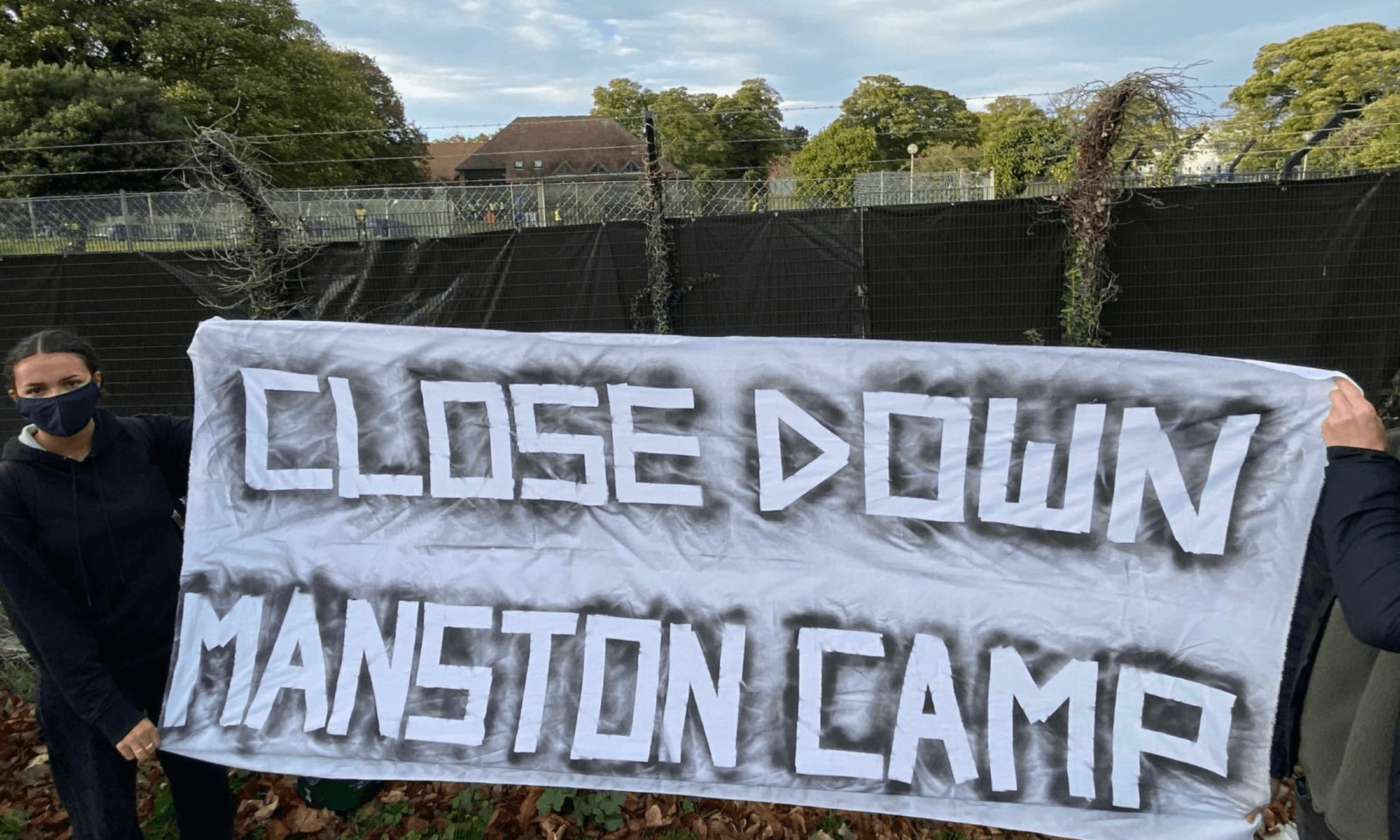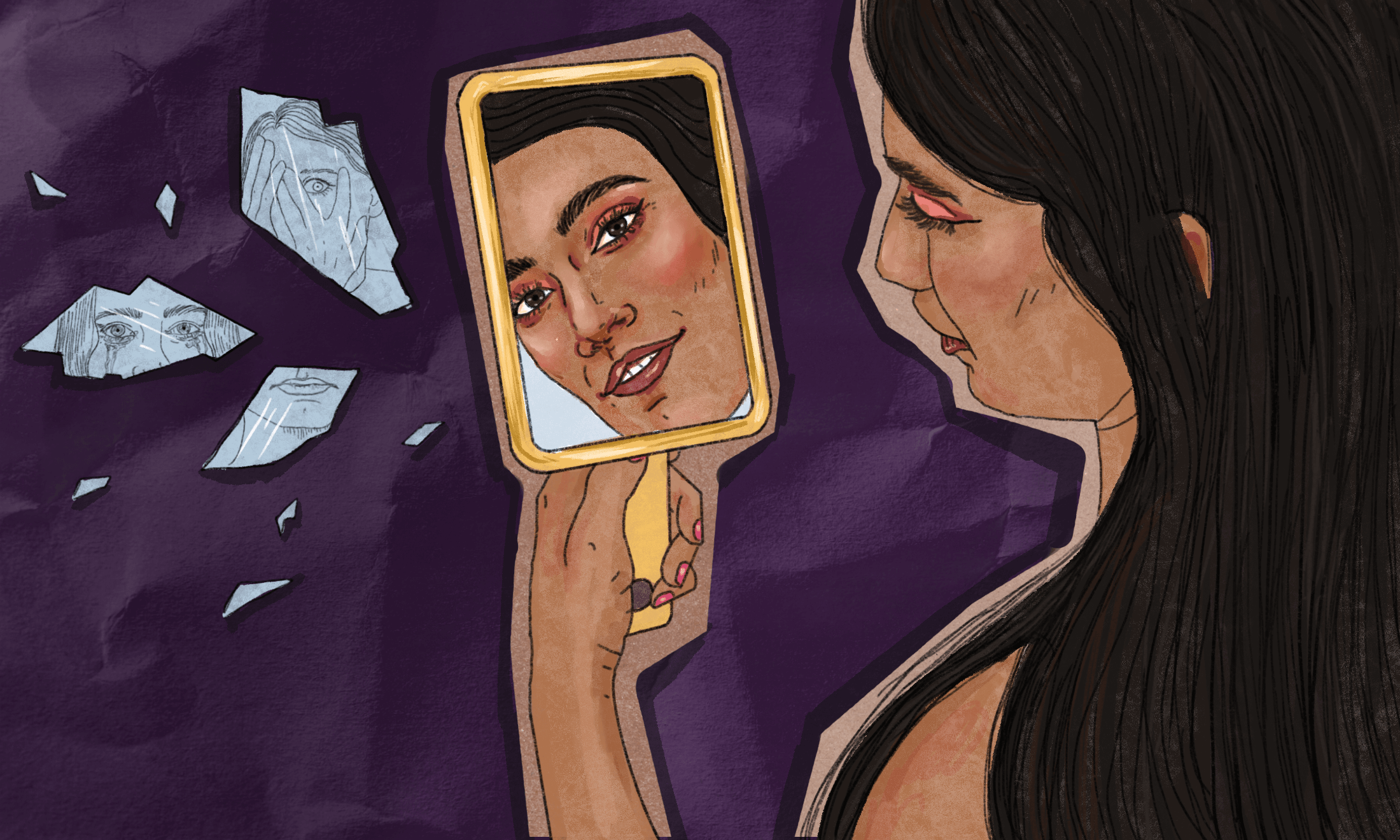The gal-dem guide to Priti Patel’s horrible new immigration bill
The home secretary's new Nationality and Borders Bill is attempting to criminalise asylum seekers altogether.
Minnie Rahman
13 Jul 2021

Number 10/Alisdare Hickson/Flickr
Since the death of two people in the English Channel in 2020, Priti Patel has floated an increasingly absurd and dangerous series of immigration proposals. From wave machines in the Channel to asylum camps on abandoned oil rigs, campaigners have long been raising the alarm about the direction this government intends to take the asylum system. Now Patel is trying to bake her draconian vision of immigration into law.
On 19 July, the new ‘Nationality and Borders Bill’ will have its second reading in the House of Commons and details will be debated by MPs. The Bill is a missed opportunity to ensure that asylum seekers both in the UK and overseas are protected, and instead will roll back our commitments to the 1951 Refugee Convention, putting the lives of people seeking safety in the UK at risk. We need to fight it and in order to do so, we have to be clued up on what the Bill is – so read the gal-dem guide to the worst bits of the new legislation, below.
Criminalising asylum seekers
The Bill creates a discriminatory two-tier asylum system which treats some refugees as ‘good’ and some as ‘bad’, depending on how they entered the UK. Instead of assessing need, the government will look at means of arrival. Anyone who arrives by boat or other means without prior permission could be criminalised, with those found “guilty” facing up to four years in prison. Remember: international law says there is no such thing as an ‘illegal’ asylum seeker. Anyone has the right to seek asylum in any country that has signed the 1951 Refugee Convention, and it’s accepted that people may use irregular means of travel to do so.
But Patel’s proposals completely ignore the reasons why someone might need to enter the country via a route like the Channel. Many asylum seekers stuck in France are desperate to reach loved ones or family members in the UK and come from countries with a strong colonial relationship to the UK.
In the majority of cases, refugees must already be on British soil to claim asylum in the UK. Resettlement routes from outside the UK are extremely limited, and many have recently been closed. Most refugees are simply unable to make an application for asylum before they are forced to flee their homes, and around two-thirds of those granted asylum in the UK had not travelled here via resettlement schemes. The government’s focus on resettlement almost entirely excludes LGBTQI+ people, religious minorities and those fleeing political persecution.
Increasing risk of exploitation
The Home Office has sold this Bill as a means to stop dangerous criminals and end channel crossings by increasing criminal offences. However, these measures will only make journeys to the UK more dangerous, empower people smugglers and traffickers, and will ensure that asylum seekers are wrongly convicted.
Already, the Home Office has been using drone footage to single out refugees driving small boats at sea and attempting to prosecute them under legislation that had previously been used against members of organised crime networks. The Crown Prosecution Service was forced to release guidance opposing these moves just this week, stating that asylum seekers who have been piloting a boat should not be charged with people smuggling.
The government intends to extend this practice within the Bill instead of focusing on real solutions for people who have been exploited or trafficked. Years of crackdown on border security have not stopped Channel crossings from occurring. In 2019, the Foreign Affairs Select Committee – of which Priti Patel was a member – warned that “a policy that focuses exclusively on closing borders will drive migrants to take more dangerous routes, and push them into the hands of criminal groups.“
In addition, the Bill will make it harder for victims of trafficking to be recognised as victims, proving there is no intention from the government to protect people at risk.
Asylum Accommodation
One of the most significant parts of the Bill is the intention to change the way that asylum-seekers are housed and to further limit access to meagre existing support. Asylum seekers are already unable to work, must live on a limited allowance and are housed in appalling conditions, which the Red Cross has described as “vermin-infested accommodation, [with] ceilings falling in, [and] pregnant women struggling to access healthcare”. Throughout the pandemic, the Home Office housed people in military barracks which were immediately declared unfit for purpose by the courts, who said the government had acted unlawfully.
The Bill gives the Home Secretary powers to make camp-style ‘housing’ across the UK a standard practice, and to send people to offshore asylum centres. The plan takes inspiration from Australia, whose offshore asylum centres have been subject to international criticism, are a deadly human rights disaster, and are staggeringly expensive.
If implemented, it would mean that asylum seekers are removed from the UK without having their cases fairly heard, housed away from public scrutiny and likely in conditions that are unfit for human habitation. Priti Patel’s ability to achieve this goal relies heavily on the government being able to agree new deals with third countries that currently do not exist, and many countries have already stated their opposition to such a deal. This would leave people in limbo, with no right to stay in the UK and a Home Office focussed solely on sending them somewhere else, bringing an already broken system to its knees.
Changes to the Judicial System
The final part of the Bill is a barely disguised attempt to stop legal representatives for asylum seekers from challenging the Home Office through the introduction of fines for “time-wasting” and limits on access to justice through further convoluting the appeals process.
A series of proposals will increase the ‘proof’ threshold for individuals, which is already detrimental to many people who have fled without documents. People seeking asylum based on sexual orientation or gender identity are particularly at risk, as they already routinely have their claims rejected because the Home Office often does not believe their stories.
The inevitable outcome of this Bill is that the UK will take in far fewer people in need of protection and is making a predetermined judgement on who is and is not deserving of safety. Not only will people be at more risk of trafficking and exploitation, even if they reach the UK’s shores, they will be left in limbo, without support, and treated as criminals. The Bill does not attempt to understand the reality of life for asylum-seekers. It is vital that we do everything we can to protect migrants, asylum-seekers and refugees and welcome them into our communities.
Collectively, we must oppose this Bill. Start by writing to your MP, with this template, today.
Minnie Rahman is Campaigns Director of the Joint Council for the Welfare of Immigrants

All the bad bills the Tories are pushing through this year

Shut down Manston camp, and take the rest of the UK’s violent immigration system with it

Revealed: ‘Shocking’ number of asylum seeker infant deaths in Home Office housing






